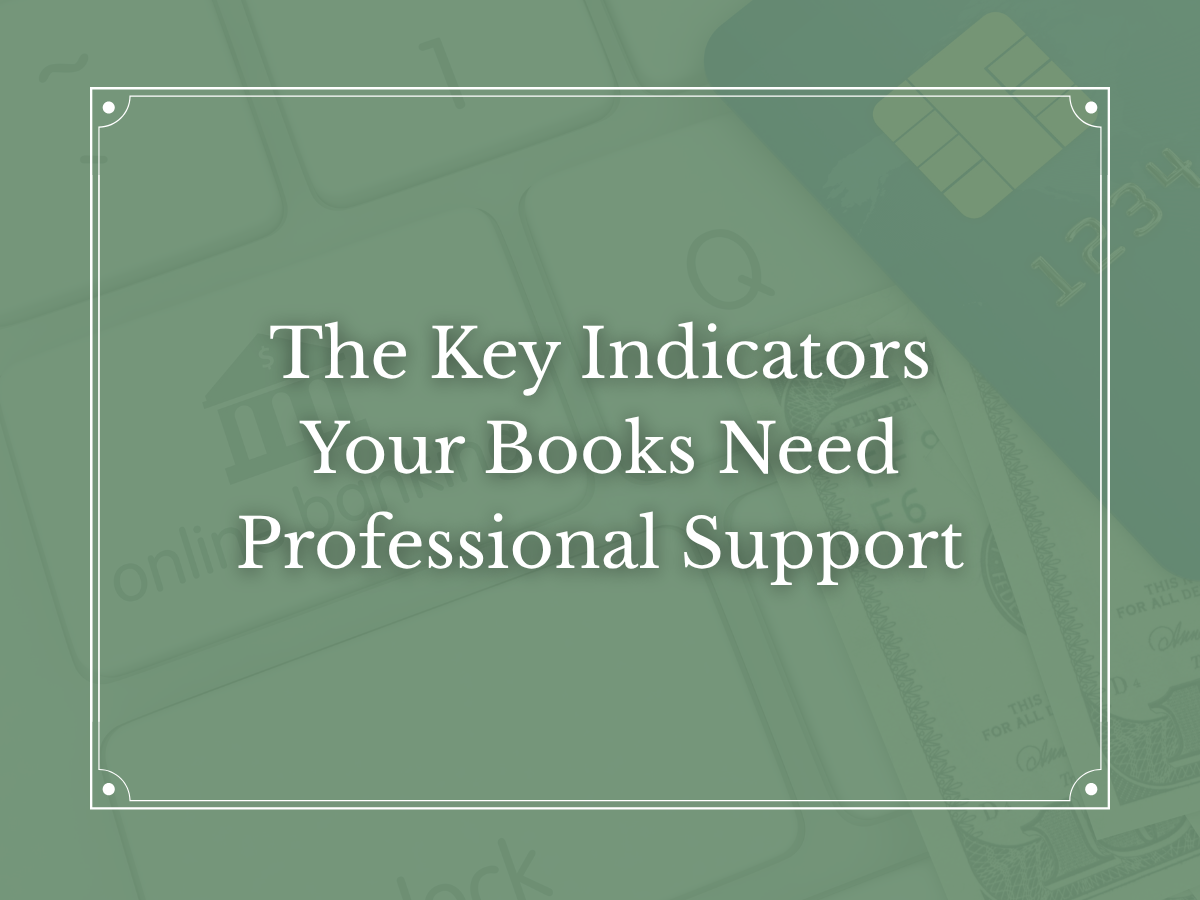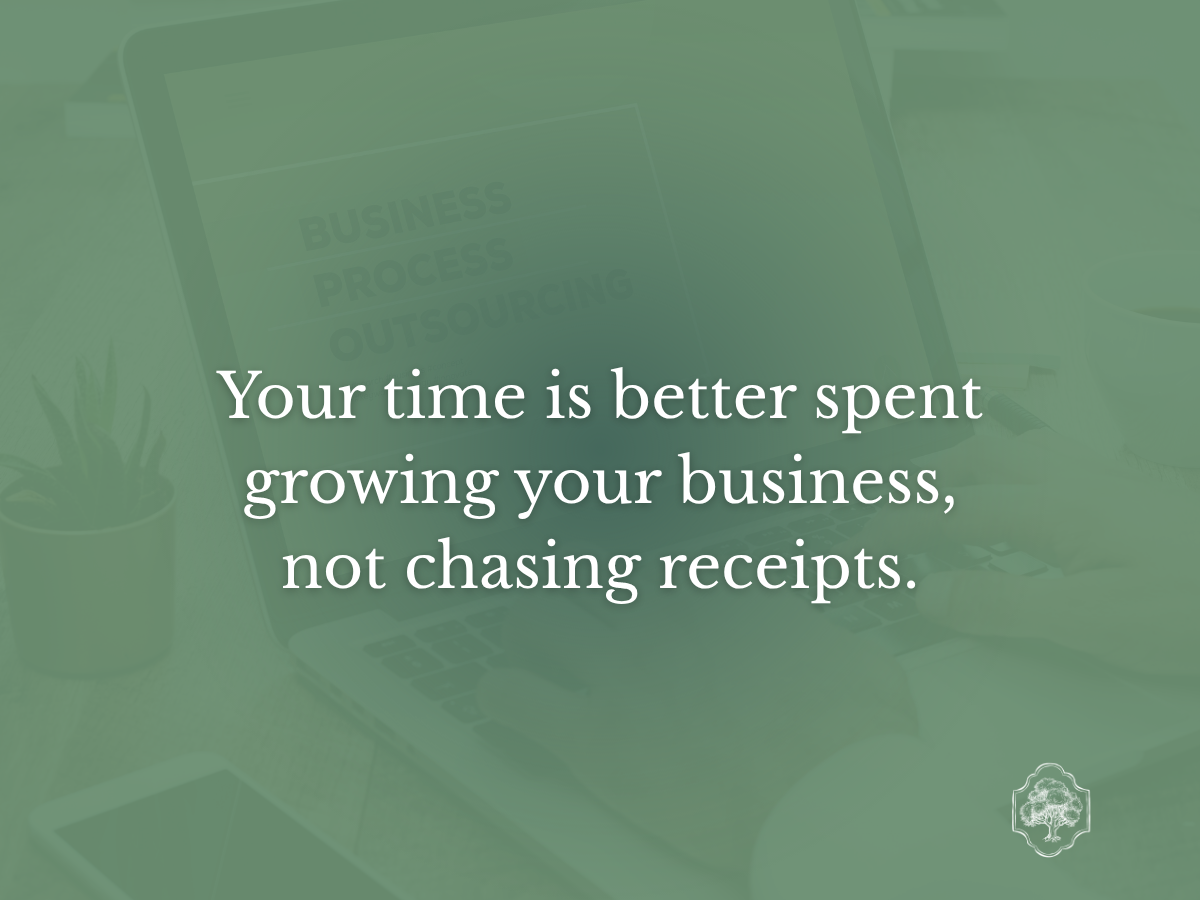When It Makes Sense to Hire a Bookkeeper
Wearing Too Many Hats Is Normal in the Early Stages of Business
Most business owners start out wearing many hats. It saves money, it feels manageable, and in the early days you often have more time than clients. Very few entrepreneurs open their doors with a full team in place. Most begin with just themselves, sometimes a partner or two, doing everything possible to keep costs low while trying to build momentum.
One of those early hats is almost always bookkeeping.
In the beginning, tracking income and expenses feels simple enough. There are only a handful of transactions each month. You recognize every charge, remember why the money was spent, and the software feels intuitive because the activity is minimal.
When DIY Bookkeeping Stops Supporting Your Business
As your business grows, the number of transactions grows with it. More clients lead to more payments, more subscriptions, more tools, and more complexity. What once took minutes now takes hours.
Bookkeeping slowly shifts from something you do consistently to something you push off until later. It becomes administrative work instead of the financial system it actually is. At this stage, many business owners are still “doing” their books, but not reviewing or using them.
That shift matters.
Falling Behind on Your Books Is More Common Than You Think
Then tax season arrives.
You are scrambling to pull bank statements, track down receipts, and remember what happened months ago. Extensions get filed. Promises are made to catch up soon. Meanwhile, decisions are being made without clear financial data.
Many business owners feel embarrassed when their books fall behind. They assume everyone else has it figured out. The truth is that almost every entrepreneur I work with has fallen behind at some point. Finances feel personal, which makes them easy to avoid when things feel messy.
Knowing When It Is Time to Hire a Bookkeeper
Needing help with your books is not a failure. It is often a sign that your business has outgrown the DIY phase. The systems that worked early on no longer scale, and your time is better spent running and growing the business.
Outsourcing bookkeeping allows you to regain clarity, consistency, and confidence in your numbers without carrying the full administrative load yourself.
Outsourced Bookkeeper vs In-House Support
Not every business needs an in-house bookkeeper. Many small and growing businesses benefit from working with a virtual bookkeeper who can maintain the books, provide regular reporting, and offer insights without the cost of a full-time hire.
Understanding which option fits your current stage is part of building a financial setup that supports growth instead of creating unnecessary overhead.
When it comes to bookkeeping support, many business owners wonder “Is it better to hire someone local or go virtual?”
Hiring an Outsourced Bookkeeper
While working with a local or in-house bookkeeper might feel more traditional, virtual bookkeeping offers flexibility, speed, and modern convenience that better fits today’s fast-paced business environment. For many small and growing businesses, it is also a more cost-effective option.
In today’s world, nearly every aspect of bookkeeping can be handled securely online. At its core, bookkeeping comes down to three essential tasks: categorizing transactions, reconciling accounts, and providing clear financial reports. All of this can be done through QuickBooks Online using secure bank feeds and carefully selected integrations that keep financial data accurate and up to date.
With access to real-time information, professional bookkeepers apply judgment and industry standards to categorize transactions accurately, even when a receipt is not immediately available. This allows books to stay current without slowing down operations or waiting on manual follow-ups. Because everything lives in the cloud, financial clarity can be delivered remotely without sacrificing quality, accuracy, or control.
Outsourced bookkeeping also brings structure and consistency. Rather than reacting to bookkeeping as it piles up, virtual bookkeepers work within defined workflows and schedules. This includes regular reconciliations, routine reporting, and proactive issue identification, so problems are addressed early instead of surfacing at tax time.
A virtual bookkeeper also helps build efficient systems that run consistently behind the scenes. Automated reminders, scheduled reports, streamlined processes, and standardized categorization all reduce friction and decision fatigue for business owners.
In addition, when you hire an outsourced bookkeeper like Oak and Ledger, you eliminate the need to train someone internally on bookkeeping from scratch. You gain immediate access to established systems, professional expertise, and a process designed to scale as your business grows, without the overhead of hiring, onboarding, and managing an employee.
For businesses that do not require daily financial touchpoints but still value accuracy, insight, and reliable reporting, outsourced bookkeeping often provides the strongest balance of support, expertise, and efficiency.
Hiring an In-House Bookkeeper
Hiring an in-house bookkeeper can make sense at a certain stage of business, but it is often misunderstood as the “next step” before it is actually needed. An in-house role is best suited for businesses with consistent, high-volume activity that requires daily financial involvement.
An in-house bookkeeper typically handles day-to-day tasks such as entering transactions, managing invoices and bills, coordinating payroll, and supporting internal reporting. Because they are embedded in daily operations, they can respond quickly to immediate needs and collaborate closely with other team members.
In-house bookkeeping becomes especially valuable when a business has operational complexity that cannot easily wait for weekly or monthly processing. This often includes businesses with inventory that requires frequent tracking and adjustments, high volumes of accounts payable that involve regular vendor coordination, or significant accounts receivable activity where daily invoicing, payment follow-ups, and cash application are critical to maintaining healthy cash flow.
This model can also make sense for companies with multiple departments, locations, or teams that rely on timely financial information to make day-to-day decisions. In these cases, having someone internally available to manage financial tasks supports smoother operations and faster communication.
It is important to note that these functions can absolutely be handled by an experienced outsourced bookkeeper. At Oak and Ledger, we regularly manage accounts payable, accounts receivable, and complex workflows for our clients. The deciding factor is not capability, but timeliness. Because outsourced bookkeeping supports multiple businesses at once, the work is structured around agreed-upon schedules rather than continuous daily processing.
If your business requires same-day invoicing, daily payment follow-ups, real-time inventory updates, or constant financial touchpoints throughout the week, an in-house bookkeeper may be a better operational fit. Not because the work is outside the scope of professional bookkeeping, but because the volume and urgency require someone dedicated exclusively to your business.
That said, bringing bookkeeping in-house comes with additional responsibilities beyond salary alone. Business owners must account for payroll taxes, benefits, software access, training time, and ongoing oversight. Without clear systems and documented processes, an in-house hire can unintentionally inherit inefficiencies or inconsistencies that create more cleanup later.
In-house bookkeeping works best when the business already has clean, well-structured books and clearly defined workflows. At that point, an internal bookkeeper becomes a support role within an established system rather than someone tasked with building or fixing the system itself.
For many growing businesses, hiring in-house is not about replacing professional bookkeeping expertise, but about supporting daily operations once volume, complexity, and internal demands truly require it.
If you’d like a heads-up when a new post goes live, you can subscribe below.
No pressure and no frequent emails. Just occasional updates when something new is published.
Final Thoughts
Your business is growing, and your support system should grow with it. Your time is your most valuable asset. Partnering with a bookkeeper ensures your finances stay steady while your roots grow deeper.
When you are ready to take the next step, schedule a consultation.


